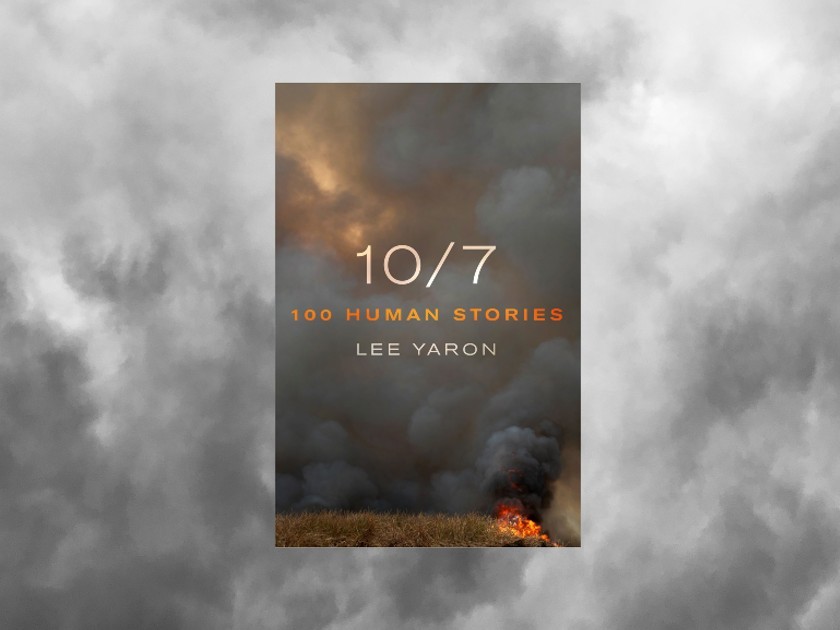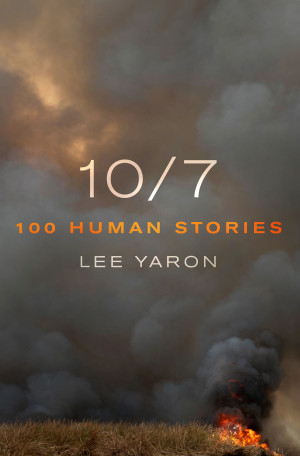
The Jewish tradition of “sitting shiva” — of observing a ritual mourning period following a death — is derived from the Hebrew word sheva, meaning “seven.”
In the Book of Genesis, Joseph “mourned with a great and very sore lamentation” for seven days after burying his father, Jacob. In the prophetic Book of Job, Job loses his wife, his seven sons, and his three daughters, following which his companions sit him down on the ground — down in the dust — and attempt to comfort him for seven nights and seven days.
Millennia later, in Jewish communities worldwide, the ritual still follows the ancient formula. The seven days of mourning commence with the day of burial, as the immediate family members are compelled to “sit.” During this time, any semblance of daily routine is forbidden: a mourner may neither work nor cook, clean the house nor bathe. They must remain in the home of the deceased, sitting as close to the ground as possible, embodying the lowness of their sorrow. The door must be left open to any comforters who wish to visit; their role is to help carry out the family’s everyday tasks. Throughout this period, the mourners must abstain from pleasure. They must tear their clothes to demonstrate both the rip in their souls and the unimportance of terrestrial trappings. They must also cover their mirrors, so as not to be distracted by appearances as they turn their gaze inward.
Greeting mourners with any word containing the root shin-lamed-mem, the Semitic origin of the Hebrew shalom (and of the Arabic salām) is forbidden; no peace should be sought during the mourning period.
On the seventh and final day, those who’ve come to offer condolences are asked to “wake” the mourners and help them rise. Grief, that most controlling of emotions, must have a formal end.
But seven full days, the span it took God to create the world and all living things, is barely enough time for us humans to mourn one single life, to rise above our lamentation.
Judaism, which has commandments that govern every aspect of the human experience from birth to death, offers little guidance on how to hold the kind of shiva required following a massacre such as the one that occurred on October 7th, 2023—shiva b’October in Hebrew — or the war that came in its wake.
If one has lost one’s son, daughter, mother, and husband all on the same day, should they be mourned collectively, or is there a certain order? Should one sit seven days of shiva for each individual or sit collectively for one weeklong stretch? What does one do without a body to bury? Or if the body is held in captivity — should one start mourning without a burial or wait for the corpse’s return? What is the role of the comforters if they themselves are in mourning? And how to mark shiva’s end, without a routine, or even a home, to return to, in the midst of war?
Since the first weeks of this now yearlong shiva, I have been searching for answers to questions like these — for a way to mourn and a way to rise, for a way to say “shalom” once again. I have interviewed hundreds of bereaved parents and children, along with survivors and first responders. I’ve spoken with left-wing kibbutzniks and Burning Man – esque partiers, Bedouins and Israeli Arabs, peace activists and organizers, Holocaust survivors, refugees from Ukraine and Russia, and more.
In 10/7, I tell the stories of one hundred civilians — mothers, fathers, children — who lived and died on the Gaza border. I investigate not only their final moments, but also their lives, beliefs, communities, and family histories, going back two to three generations to when the Israel/Palestine conflict started. Their personal stories are woven into the larger political and historical narrative.
In the first week of December, I was in the middle of an interview with a mother who lost her son and daughter-in-law when I received the news that one of my dearest friends, Gal Eizenkot, had been killed in Gaza during a hostage rescue mission. I found myself on the other side of grief’s divide, among the mourners I’d been documenting.
In our polarized times, these human stories — these humanizing stories — are more necessary than ever. To enable rising above, to allow for any diplomatic solution, the initial step must be a human solution: empathy.
As I suffered the pain of his loss, it was particularly tragic to see how he was made into a political symbol, his individuality and unique personality lost in the process. This book, dedicated to Gal, aims to preserve the humanity of these victims — to restore to them the humanity that was stolen from them.
I believe this is where literature differs from the media. It keeps them alive, at least on paper.
In a way, 10/7 is a first line of defense — a defense against distortion, a defense against forgetting. As I wrote it, as I interviewed the bereaved, I thought often of those I couldn’t interview — among them, the young women who sat keeping watch at the border.
This job, called spotting, is given only to female soldiers. There’s a misogyny at work here — a military-grade misogyny — a male upper-echelon belief that Israeli border technology is infallible and that these women are merely backup, less capable than sophisticated sensors and state-of-the-art computers.
But the truth has since come out: it was these young women who first spotted that Hamas was conducting exercises and testing Israeli defenses on the border. A number of them spoke up, weeks and months before October 7th, and reported suspicious activity to their superiors. But like the Trojan princess Cassandra, their reports were ignored, their concerns dismissed. No action was ever taken.
Spotting is a thankless job — the spotters sit alone for hours and hours on end, staring out into space. But these women must remain vigilant, no matter what.
On October 7th, Israeli border defenses were overwhelmed. Sixteen spotters were killed, and seven were taken hostage. They were among the first to be harmed that Sabbath.
As we mark the one-year anniversary, I fear we’re trapped in perpetual mourning, an endless shiva. Many — Israelis, Palestinians, and more — have stopped listening to each other’s wailing. Each tragedy only serves to expand the walls between us.
In our polarized times, these human stories — these humanizing stories — are more necessary than ever. To enable rising above, to allow for any diplomatic solution, the initial step must be a human solution: empathy.
I believe that literature, storytelling, is the best way to achieve this.

10/7: 100 Human Stories by Lee Yaron
Lee Yaron is an award-winning Israeli journalist and the winner of the 2022 Yitzhak Livni “Knight” Award for Free Speech in Media, 2024 Jewish Book of the Year, and 2025 Natan Notable Books. Her investigative reporting has resulted in the founding of state-level commissions and substantial changes to Israeli policy and law. She is an elected member-representative of the Executive Committee of the Union of Israeli Journalists.